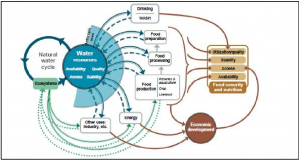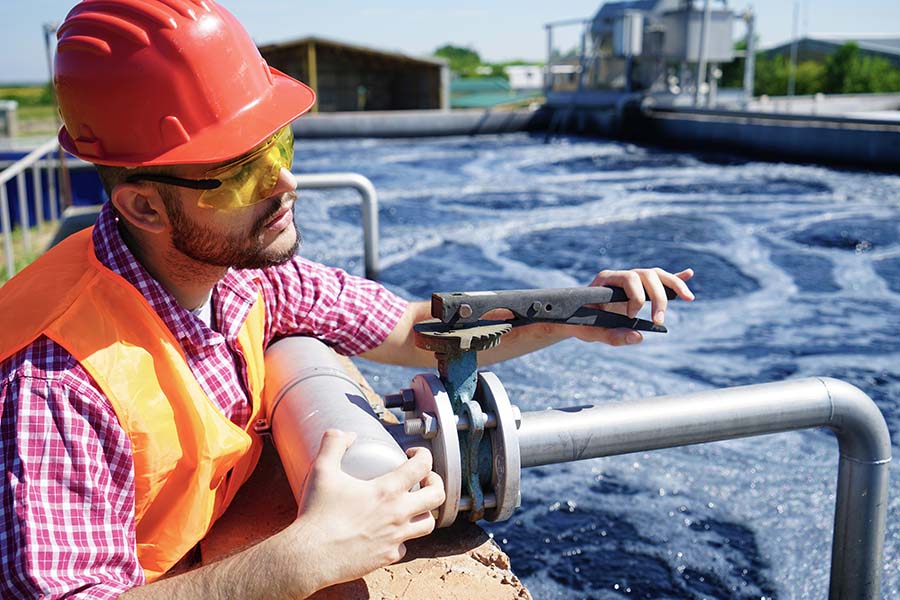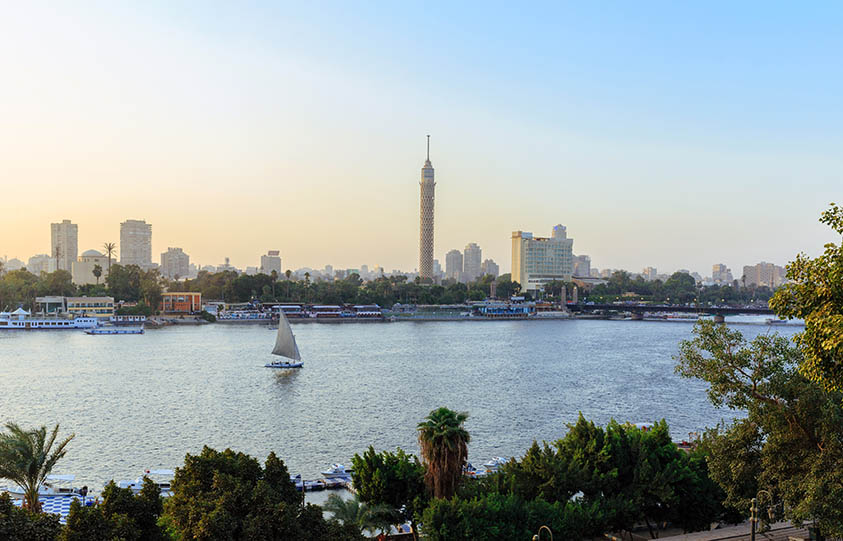A specific MADFORWATER activity was devoted to the analysis of the effects that water stress and vulnerability may have on food security and socioeconomic development in Morocco, Egypt and Tunisia. The analysis demonstrated that the activities developed in MADFORWATER could have a very positive impact on food security and socioeconomic development in the region through different channels:
- First, because improvements in the levels of irrigation efficiency and treated wastewater reuse are expected to lead to improvements in food security, partially offsetting the negative impact of climate change by 2050.
- Secondly, because one of the MADFORWATER objectives is to increase the level of treated wastewater reuse, with the improvements in the availability of water resources and a reduction of water stress levels in the targeted countries. The resulting socioeconomic growth in the region is expected to partially offset the projected negative effects of climate change on food security.
However, unless additional efforts are made to reduce food insecurity, the 2nd target of the Sustainable Development Goals (SDG 2) of ending world hunger by 2030 may not be met. Indeed, demographic pressures and an uncertain evolution of climate may put additional pressure on food security and limit access to water resources, endangering the achievement of the food security goals.
An empirical approach was employed in MADFORWATER, focusing on the four dimensions expected to impact differently on food security: resources (i.e. physical availability and endowment of water resources), access (i.e. disposability of the available resources for the population), capacity (i.e. intra-allocation of water resources depending mainly on education, health and affordability) and use (i.e. adequate management of water resources in the domestic, industrial and agricultural sectors of the economy). Additionally, an econometric modelling approach was implemented by means of panel data models including both country and year fixed effects for the period 2000-2015, and employing an extensive database covering up to 60 preliminary variables and 29 finally selected variables, for all countries in the Mediterranean.
The study positions Morocco as the country among the MADFORWATER target countries that shows the best evolution up to 2015 and the lowest levels of undernourishment, with data for the 2000-2015 period showing a salient progress on food security indicators. Besides policy efforts to improve agricultural competitiveness and rural development, positive trends in key aspects of water management and use may have underpinned food security improvements. In the case of Egypt, a significant decrease of undernourishment levels has been sustained by positive economic growth in the 2000-2015 period. While with respect of Tunisia, food security indicators show irregular trends along the considered period that may be explained by economic and political instability in recent years.
Food security levels in the Mediterranean seem to be influenced mainly by access to water resources by the population, the capacity to use those resources properly, and an adequate management and use of water resources. Particularly, access to at least basic drinking water resources by the population seems to be the most relevant dimension in ensuring food security. Capacity is found to be second in importance, with affordability and health being highly related to food security, and education found only of slight less importance.
Regarding socioeconomic development, the study found that higher levels of water availability as well as an improved allocation and capacity of the population to use those resources properly seem to have a positive influence on economic growth. In addition, water stress seems to be an important factor in explaining socioeconomic development.
Finally, the study found that climate change will lead to a worsening in the situation of food security in Mediterranean African countries by 2050. However, the effects of the likely improvements experienced in socioeconomic development during this period seem to be enough as to compensate the negative impacts of climate change.

The multidimensional relationship between water stress, food security and socioeconomic development






















